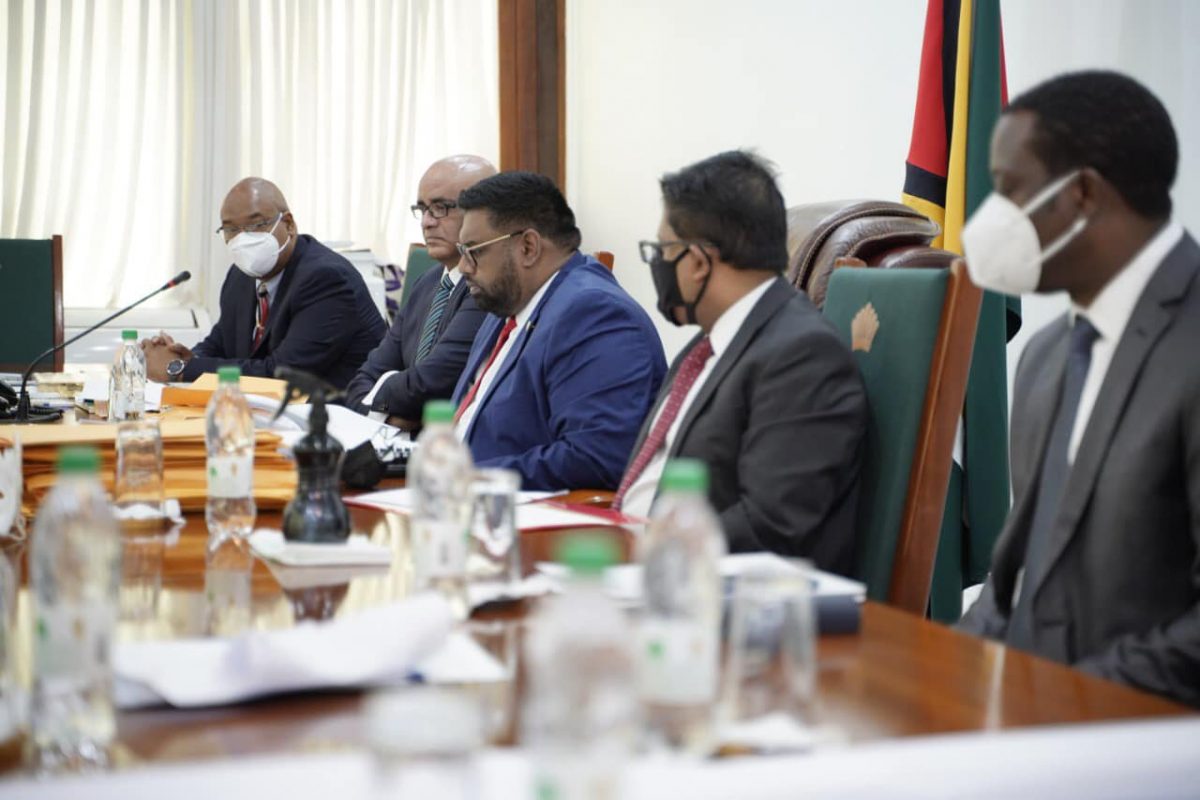
The government team during the encounter with Chinese President Xi Jinping (Office of the President photo)
Chinese President Xi Jinping said yesterday that China is willing to strengthen COVID-19 vaccine cooperation with Guyana and will continue to assist the country in its fight against the pandemic.
He made the statement in a video call with President Irfaan Ali who was attended by several of his ministers.
The government here has acknowledged the meeting but has provided no details on the matters discussed.
Access to COVID vaccines is a key issue for Guyana in light of tight supplies globally. China has thus far donated 20,000 vaccine shots to Guyana. As of last week, Guyana had 100,000 doses of vaccines on hand but it could need a further 1 million doses before the country arrives at herd immunity. President Ali said on Saturday that Guyana was in discussions with China’s Sinopharm for the supply of more vaccines.
Meanwhile, according to Chinese state media, CGTN, President Xi said that China and Guyana should take the 50th anniversary of their diplomatic ties next year as an opportunity to push for more cooperation and lift bilateral relations to higher levels.
In the conversation with President Ali, the report said that Xi suggested that the two countries “earnestly respect and accommodate each other’s core interests and major concerns, promote Belt and Road cooperation, and expand win-win collaboration in areas such as energy and infrastructure”.
Xi said the two countries have had fruitful results in cooperation since the establishment of their diplomatic ties, adding that China-Guyana relations showed great potential as trading between the two sides increased amid the COVID-19 pandemic.
Ali, the report said, conveyed his appreciation to China for its assistance to Guyana in the fight against COVID-19. The friendship between Guyana and China is strong, he said.
“China is one of Guyana’s most important partners in the country’s development process and Guyana is firmly committed to the one-China policy”, said the president, vowing to actively contribute to the “Belt and Road Initiative” with China and push for more cooperation in areas like infrastructure, the report added.
Guyana created a crisis in relations with China in February when it was announced by the US Embassy in Georgetown that Taiwan was establishing a trade office here. Any type of relations with Taiwan – which is considered by China to be a renegade province – breaches the One China Policy which Guyana has crafted over a long period. Following pushback from China, the arrangement for the Taiwanese office was cancelled.
The government has said nothing about the encounter with President Xi yesterday except to say that Ali and a high-level team held fruitful discussions with him.
The Guyana team included Vice President Dr Bharrat Jagdeo, Minister within the Office of the President with responsibility for Finance, Dr Ashni Singh, Minister of Foreign Affairs and International Cooperation, Hugh Todd and the Minister of Public Works, Juan Edghill.
